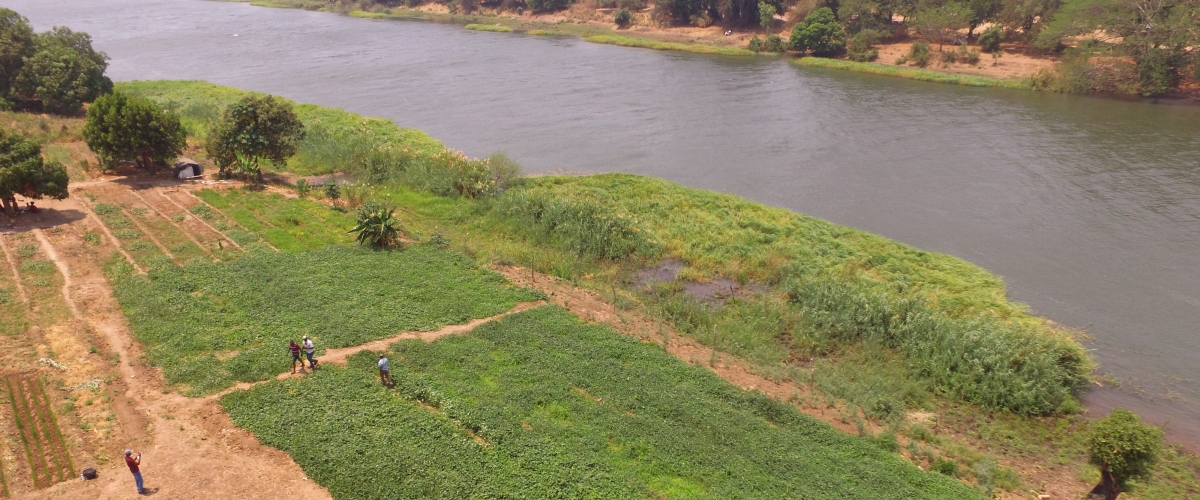
By Eunice Mbewe
Effects of climate change such as droughts and heavy rainfall threaten the livelihoods of many people in Zambia, especially smallholder farmers that contribute about 90 per cent of food produced in the Agriculture and Livestock sectors. Efforts to mitigate these effects through the Enhanced Smallholder Livestock Investment Programme (E-SLIP) have heightened through the promotion of forage production.
Recently, a field day focused on forage production by seed growers was held in Chasefu and Katete districts of the Eastern province.
Minister of Fisheries and Livestock Makozo Chikote is impressed with the forage production seed growers under the support of E-SLIP. The Minister toured the fields of the seed grower beneficiaries, namely; Wilson Phiri of Katete and Sydon Zimba of Lundazi districts in Eastern Province. Mr Chikote observed that by empowering these farmers, the government is creating jobs, enhancing food and nutrition security, and contributing to poverty alleviation. Mr Chikote also urged the seed growers to encourage other farmers to embrace pasture production and add value to their products to generate more income among the smallholder farmers.
E-SLIP promotes forage and forage seed production to enhance livestock production and product sustainability. The project aims to encourage good animal nutrition practices among its beneficiary farmers. E-SLIP seeks to improve the incomes of poor rural households in targeted districts through the restocking exercise and the promotion of forage and forage seed production.
E-SLIP has employed 55 seed growers countrywide. In 2019, they produced 8.8 metric tonnes, whereas in 2020, they increased to 51 metric tonnes, and 117 metric tonnes were produced last year. This initiative is growing steadily and yielding positive results; the forage seed growers are already sharing their experiences on the impact of forage seed production on their livelihoods.
A beneficiary farmer in Kamphambe Agriculture camp in Katete, Eastern Province, Wilson Phiri, narrated how people thought he was running mad when they saw him planting grass in his field. They said grass has no benefits, so they wondered why I was growing the grasses.
With more than 20 years of experience in farming, Mr Phiri was identified in 2017 and was given pasture legumes such as Velvet beans, Cowpea and Red Sunhemp, while for grasses, he received Rhodes grass and Panicum maximum for multiplication purposes.
Mr Phiri had the privilege of hosting the field day at his farm, where he demonstrated and taught other farmers the importance of growing, conserving and processing pasture seeds. Mr Phiri explained the nutritional supplements in the grasses that improve animal nutrition. He also stressed that cattle that feed on these pasture produce more milk than those that feed on accessible range grasses as it does not have nutritional supplements, hence the need for Rhodes grasses.
From 2017 to date, Mr Phiri’s production has steadily increased from one metric tonne to 8.5 metric tonnes, while his income increased from K34,308 in 2019 to K334,405 in 2021, translating to a profit of more than K300,000. Mr Phiri’s livelihood has dramatically improved. As a result, he has managed to pay school fees for his children and bought a motorbike. His vision is to buy another farm and start making feed for livestock.
And another beneficiary, Sydon Zimba from Chasefu District in Eastern province, expressed happiness because cowpeas are not only used for pasture production but also nutrition benefits for both animals and human beings. “These legumes that we are growing for pastures, we also use them for human consumption when we cook and eat cowpeas which have nutrition benefits,” Mr Zimba further explained.
The seed growers disclosed that they are adding value to their produce after harvesting their seed. They package them, label them, and pack them into small packs of one kilogramme to be sold at an affordable price of K25 for the farmers to make it affordable and easily accessed.
The seed they are producing is not just ordinary grains, but certified seed with 100% germination and the inspectors have examined the seeds. Instead of selling in 50-kilogramme bags, they have decided to package in smaller quantities with labels to attract more buyers. E-SLIP also supported them with tents, weighing scales and sealing machines.
However, Mr Zimba has lamented the lack of water as the major challenge in the community. “With irrigation, it’s easy for us to grow the pastures and legumes throughout the year, especially in the dry season when we don’t have the rains, he explained. Mr Zimba appealed to the government through E-SLIP to help them with irrigation so that they can have water throughout the year, increasing production and productivity.
Adding value to agricultural products like legumes through processing and packaging will ultimately increase the incomes and improve the livelihoods of smallholder farmers, hence the need to have more livestock farmers produce forage seed in massive quantities.
The author is a journalist and works as a Television Producer with the National Agricultural Information Services





